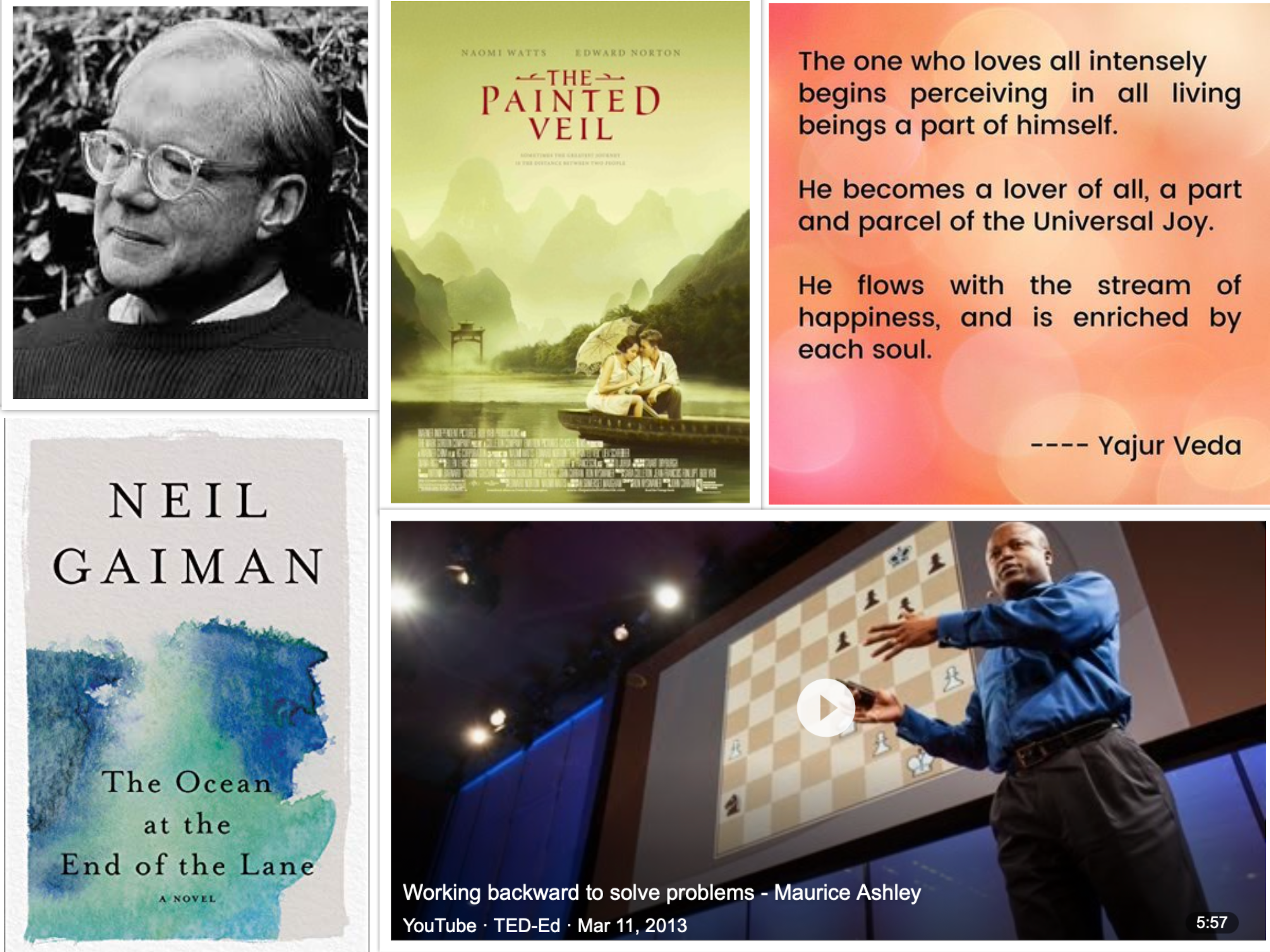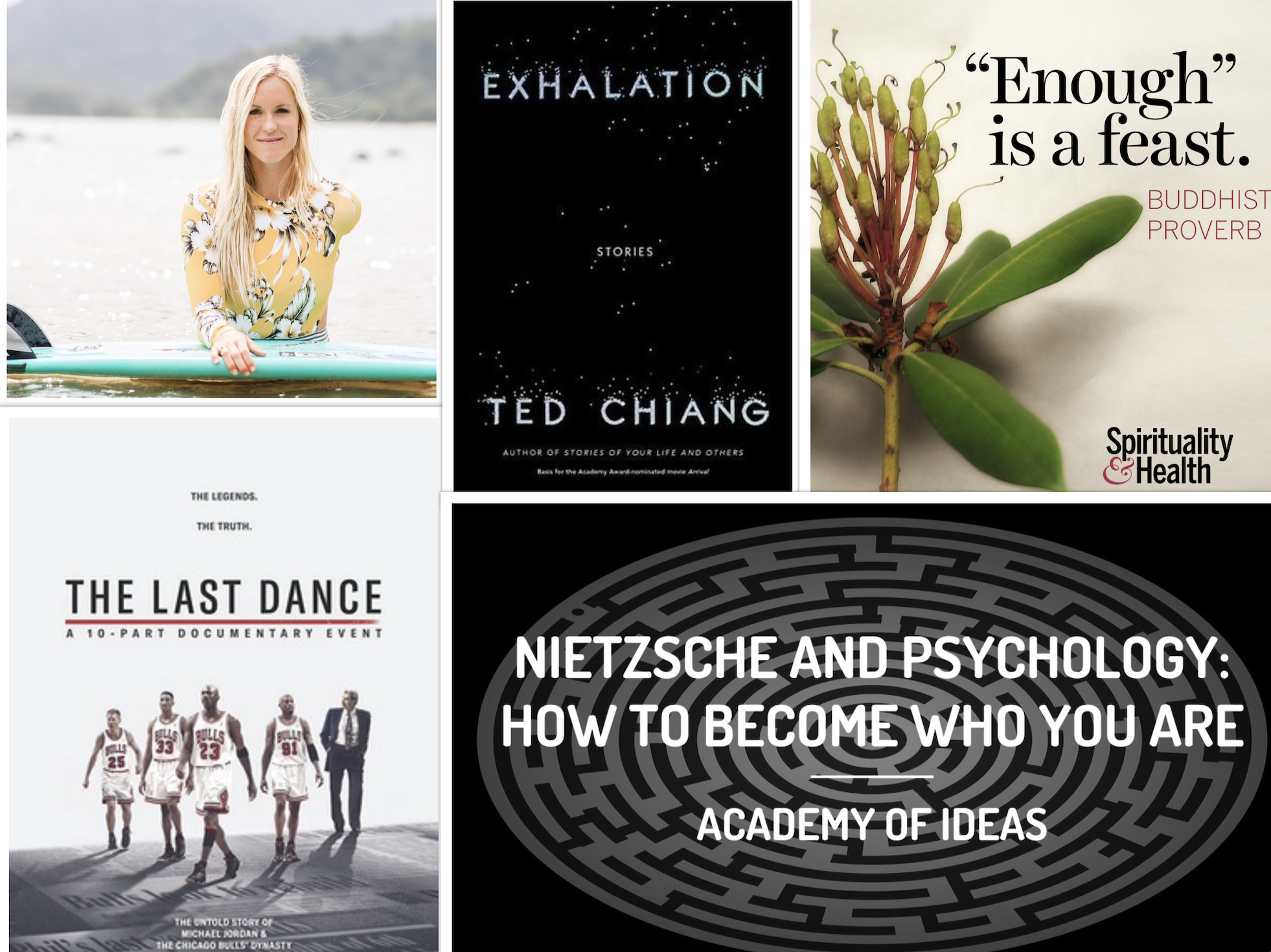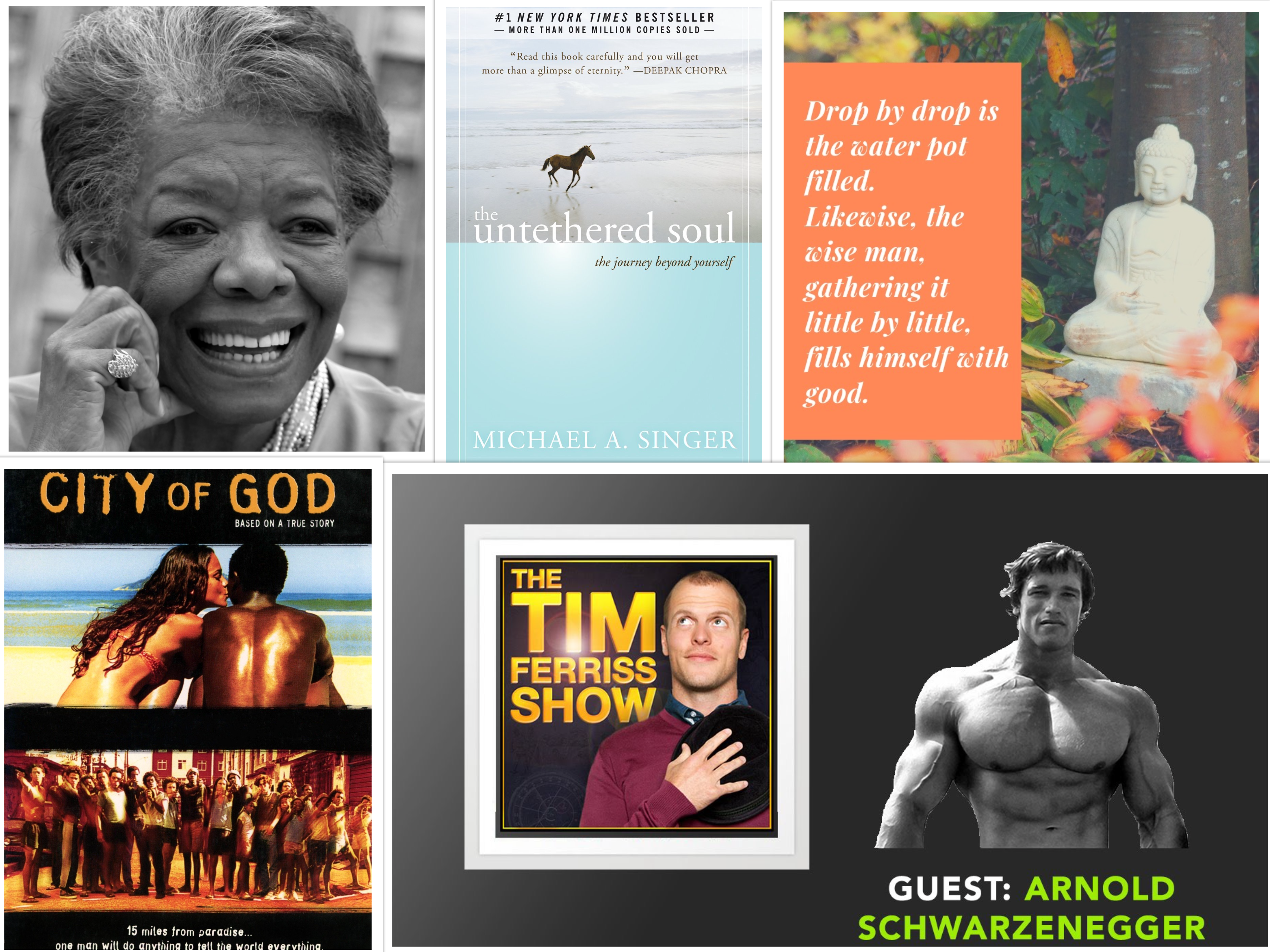Sunday Supplement #16 (August 29th, 2021)
Below is another Sunday Supplement with a quote worth sharing, a book worth reading, a movie worth watching, brainfood worth consuming, and a spiritual passage worth pondering.
I hope you take something away from this post that enriches your week ahead!
Quote of the Week:
“Opinion is really the lowest form of human knowledge. It requires no accountability, no understanding. The highest form of knowledge is empathy, for it requires us to suspend our egos and live in another’s world. It requires profound purpose larger than the self kind of understanding.”
– Plato
Book of the Week:
A Clockwork Orange – Anthony Burgess
Anthony Burgess is most recognized for the massive success of his novel A Clockwork Orange, which he gave credit to Stanley Kubrick for the movie adaptation. The film is a cinematic masterpiece for many reasons, but it is not a completely faithful adaptation of the novel. It also isn’t a great representation of Burgess’s work as a whole.
Most of Burgess’s creative writing was comedic, and he considered himself as much a composer as an author with over 250 musical pieces credited to his name. He was also a literary critic for The Observer and The Guardian and wrote studies of classic writers during his lifetime. For any who read A Clockwork Orange, though, it’s obvious why it’s his most famous work.
A Clockwork Orange takes place in a dystopian city that contains a youth subculture of acute violence. Gang leader, Alex, narrates his terrorizing journeys to the reader in a Russian-influenced English slang. Everything about the novel pushes the boundaries of good and evil and the meaning of human freedom. The primary arc of the book follows Alex’s adventures, his imprisonment for his crimes, and his subsequent release after he has been “reformed.”
What most people will miss if they’ve only seen the Kubrick film is the final chapter the famous director omitted. This chapter brings an entirely different perspective to the end of the story and is worth the whole read to find out where Burgess intended to leave Alex. The novel takes a chapter or two to get used to the language, but it is well worth pursuing. It is on many top lists of “Greatest English Novels” and deserves its place in literary history.
Movie of the Week:
A shy young woman is cursed to an elderly age by a spiteful witch. Her only chance of reversing the curse is in the hands of a self-indulgent, insecure young wizard and his bizarre walking castle.
I highlighted Studio Ghibli’s Princess Mononoke in Sunday Supplement #2, and this is another gem from the acclaimed Japanese animation studio. Any one of their films is worth checking out, but this is one of their best. The theme of self-belief throughout the film creates an uplifting and wonderful watch.
The movie creates a beautiful blend of magic and realism. The internal journeys of each character have depth and meaning that come from a brilliantly adapted story. The scenery is breathtaking, and the magic in the film allows director Hayao Miyazaki to bring out the best of his creativity. I highly recommend the Japanese version, but you get Christian Bale, Billy Crystal, Emily Mortimer, Blythe Danner, and Lauren Bacall voicing the characters if you choose the English audio.
If you missed my post about Princess Mononoke, check it out, and add Howl’s Moving Castle to your list of animation films to watch. The former wasn’t nominated for Best Animated Film at the Academy Awards, but the latter was one of the picks, and both were deserving of the win. They are considered animated classics and wonderful films.
Brainfood of the Week:
An Alan Watts clip “Life is NOT a Journey” — animated by After Skool.
After Skool is a YouTube channel that animates videos as the backdrop to various life lessons presented by various individuals and texts.
Alan Watts is most known for breaking down and popularizing Buddhism, Taoism, and Hinduism for the Western world. He became known through his role as a volunteer programmer at KPFA radio station in Berkeley, California. Throughout his life, he wrote over 25 books and articles about religion and philosophy. The Way of Zen was one of the first bestselling books on Buddhism. Various of his other works put forth ideas and philosophies about human consciousness and existence.
In this video, Alan Watts talks about existence in the universe. He maintains that the universe is meant to be playful. He explains this through an analogy of music and art. The meaning in both is not determined by any destination but by the act itself. However, this concept is not something we see reflected in everyday conduct. The idea of a destination is brought on by many constructs in our society but often leaves the individual missing out on a deeper experience of life.
The After Skool video provides a cool animation of a brilliant monologue by Watts. It is a short clip and puts forth a positive perspective on engaging the world around us.
Closing Spiritual Passage:
“And of His signs is that He created for you from yourselves mates that you may find tranquility in them; and He placed between you affection and mercy. Indeed in that are signs for a people who give thought.”
– Quran 30:21
This passage from the Quran can be broken down in many different ways. One is the idea that we need companionship. From this, I take the word mate as meaning both intimate relationships and also the British slang for friend. I believe both provide significant meaning to our lives and help us be our best selves, have peace, and find purpose in life.
Another thing I pull from this passage is the idea of affection and mercy in love and friendship, meaning being there for support, especially in vulnerable moments. This isn’t always easy when you aren’t at your best, but it reminds me to be clear with my communication and inquire what is the best way to support them.
This coincides with the last part, which mentions the signs for people who give thought. In my opinion, meaningful relationships come when you give them thought and are present. You always have the time to be there for everyone at every moment, but I believe when you are with someone, you should give them your full attention and support.
I enjoyed coming across this passage from the Quran and hope you take something away from it that brings a positive perspective to your life.
Give the people you’re with your full attention and have a blessed week ahead!
Comments closed



